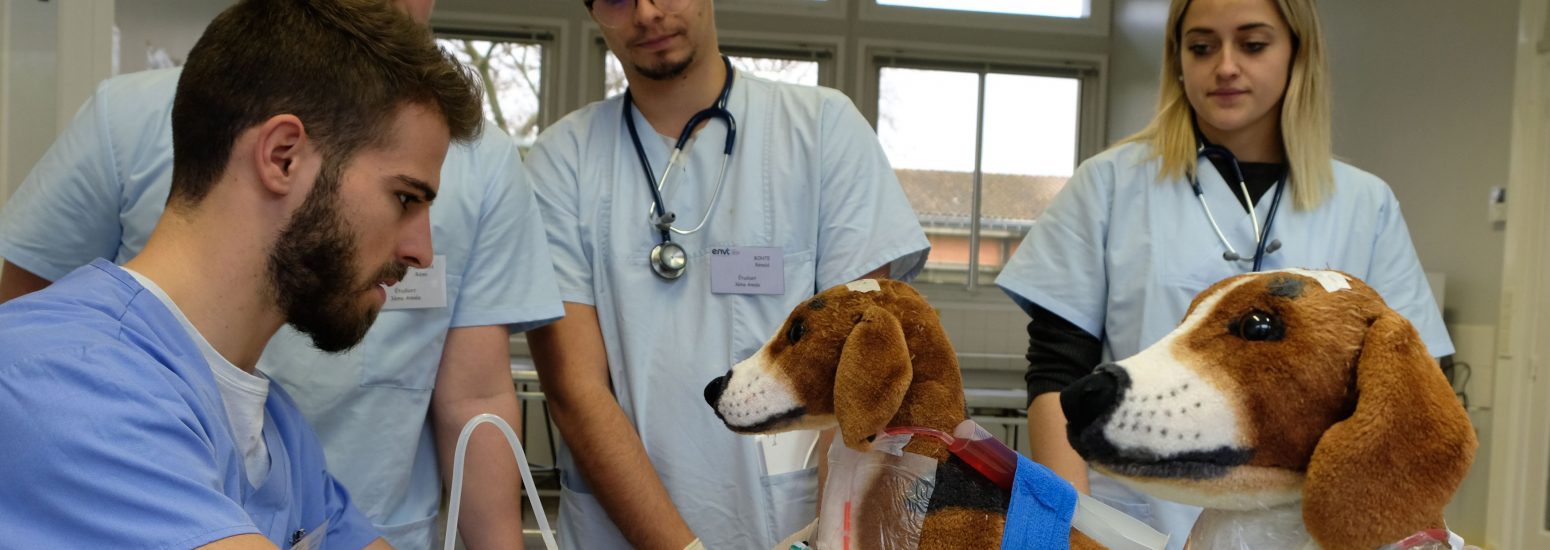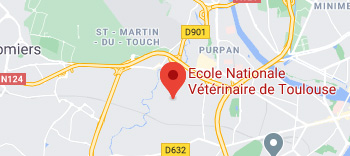Successful completion of one of the competitive entrance examinations allows students to enroll in one of the four French national veterinary schools (ENVF) and to follow the DVM veterinary course.
This 5 or 6 year theoretical and practical course, depending on the pathway, has the particularity of strongly associating clinical training and training through research.
The training consists of two parts :
- the core curriculum (4 to 5 years depending on the access route)
- in-depth training
Extra-mural experience
Internships are an integral part of the curriculum followed by ENVT students.
The smooth running of this educational exercise (supervision and validation) is ensured by the involvement of the entire educational community.
A theoretical and practical curriculum
The DVM course is aimed at training veterinarians towards careers dedicated to animal health, public health and food safety.
Veterinary education is guided by a curriculum common to the 4 French Veterinary Schools.
8 macro-competences
4 specific macro-competences
- To advise and prevent for the health and well-being of animals and for the respect of biosecurity principles.
- To establish a diagnosis on an individual or collective scale including the collection of information, the formulation of hypotheses, their hierarchy in order to treat animals or to apply this approach to other professional situations.
- To care for and treat by implementing appropriate care and treatment protocols.
- To act for public health by being the sentinel of and responsible for animal health, food safety and animal production according to the principle of “One health” (animal, human, environmental);
Conseiller et prévenir pour la santé et le bien-être des animaux et pour le respect des principes de biosécurité.
4 transversal macro-skills
- To work in a company and manage the daily economic, administrative, regulatory and human resources aspects in all areas of practice of the profession.
- To communicate with animal owners, staff, professionals, competent authorities and the general public using appropriate means.
- To act as a scientist using an evidence-based information and critical analysis strategy.
- To act responsibly and with full awareness of health, ethical and societal responsibilities, particularly in relation to sustainable development and animal welfare.
Externships
During training the student :
- Must do compulsory training periods which are fully part of their curriculum.
- Can do optional training periods.
- Must carry out a mobility abroad of a minimum of 4 weeks, this mobility can be carried out within the context of an internship.



